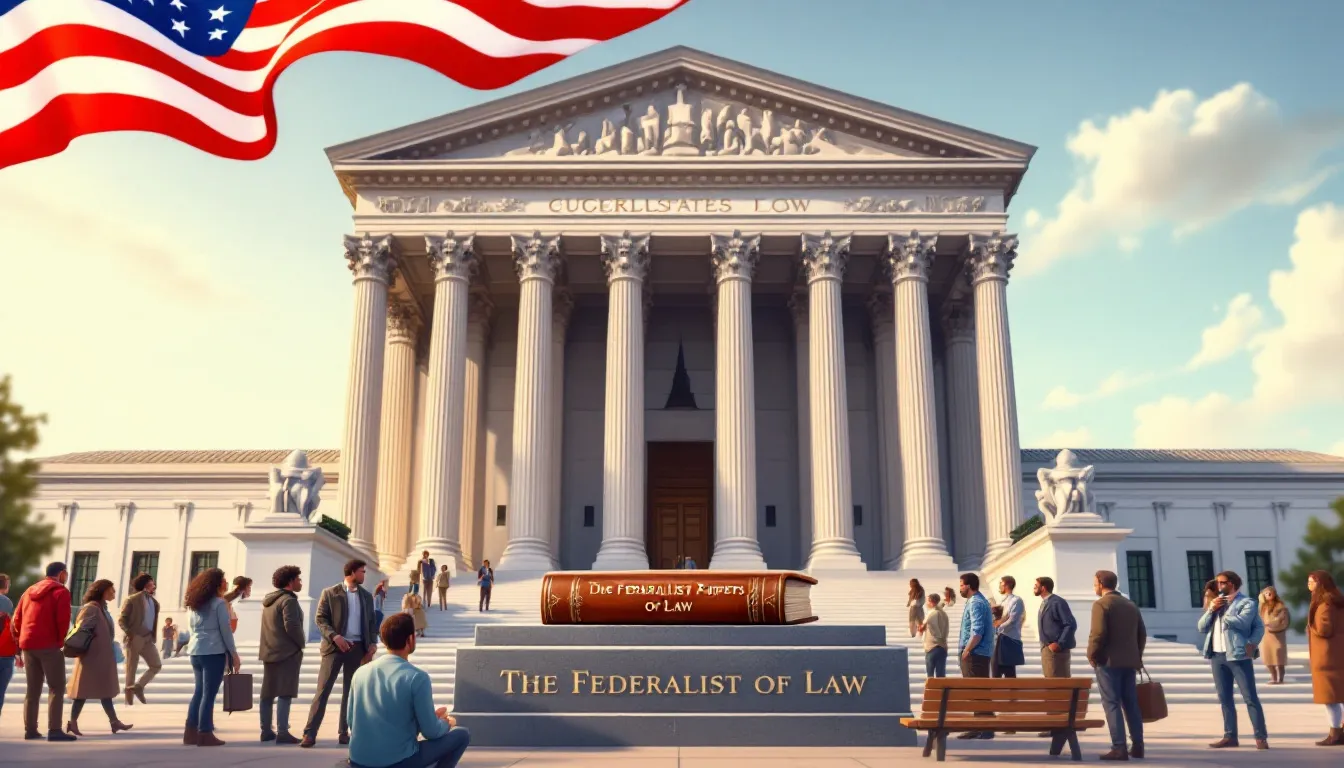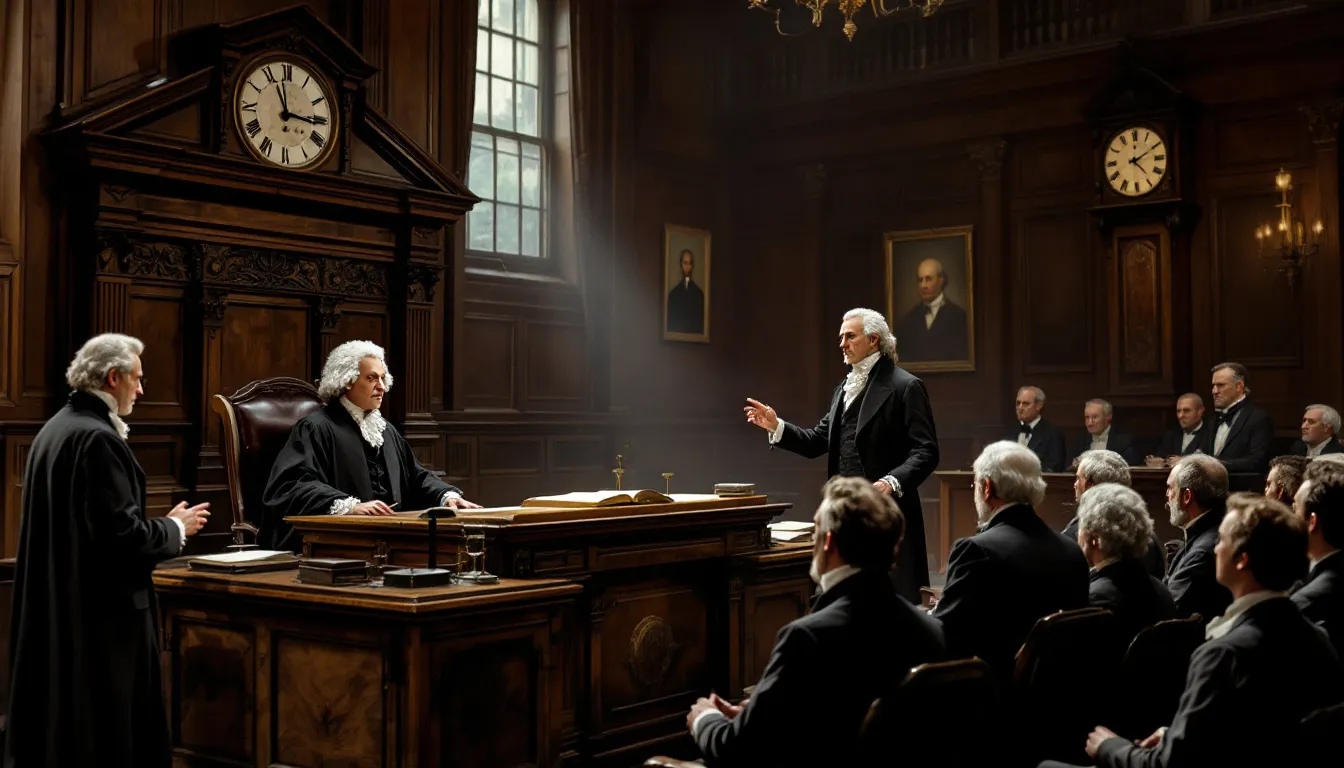- Easy Consultation (916) 704-3009
Understanding Due Process

Introduction to Due Process
Due process is a fundamental concept in constitutional law, ensuring that individuals are treated fairly by their governments – specifically, the federal and state governments. The due process clause, found in the Fifth Amendment and Fourteenth Amendment of the United States Constitution, is one of the key constitutional provisions that protect individual rights from arbitrary government actions. The Supreme Court has played a crucial role in shaping the meaning of due process, including substantive and procedural due process. American lawyers have historically interpreted the due process clause, highlighting the difference between contemporary understandings and the original legal meanings. Due process protections are essential for safeguarding individual rights, including life, liberty, and property rights. The process requires that individuals be given notice and an opportunity to be heard before being deprived of their rights, ensuring a fair process.
Historical Context

The concept of due process has its roots in English common law and was influenced by the Magna Carta. Historically, there is a distinction between ‘due process of law’ and ‘due course of law’; the former is narrowly defined, while the latter broadly encompasses all aspects of legal proceedings, including trials and appeals.
The Fifth Amendment, which includes the due process clause, was ratified in 1791 and was closely tied to the legal processes mandated by the existing law at that time, applying to the federal government. The Fourteenth Amendment, which also includes a due process clause, was ratified in 1868 and applies to state governments.
The Supreme Court has interpreted the due process clause to include substantive due process rights, such as the right to privacy and equal protection. The court has also established procedural safeguards to ensure that individuals are treated fairly in legal proceedings. In the mid-twentieth century, significant Supreme Court decisions expanded the applicability of the Due Process Clause of the Fourteenth Amendment, incorporating key elements of the Bill of Rights against state actions.
Types of Due Process: Substantive Due Process

- Procedural due process refers to the procedures that must be followed before an individual’s rights can be deprived, emphasizing the importance of adhering to the legal process.
- Substantive due process, on the other hand, refers to the protection of fundamental rights, such as life, liberty, and property.
- The due process clause has been interpreted to include both procedural and substantive due process protections. Procedural protections are essential for safeguarding fundamental rights.
- The Supreme Court has also recognized that due process applies to administrative proceedings, not just judicial proceedings.
- Due process guarantees are essential for protecting individual rights and ensuring that government actions are fair and reasonable. The concept of process jurisprudence has evolved over time, highlighting its significance in modern legal interpretations.
The Due Process Clause
The Due Process Clause, found in the Fifth and Fourteenth Amendments to the United States Constitution, is a fundamental principle of justice and fairness in the administration of law. It prohibits the federal government and state governments from depriving individuals of life, liberty, or property without due process of law. This clause is a cornerstone of constitutional law, ensuring that individuals are treated fairly and justly by the government.
The Supreme Court has played a crucial role in interpreting the Due Process Clause, establishing substantive due process and procedural due process as essential components. Substantive due process refers to the protection of fundamental rights from government interference, ensuring that certain rights, such as privacy and equal protection, are safeguarded. Procedural due process, on the other hand, requires that individuals be given notice, the opportunity to be heard, and a decision by a neutral decision-maker before being deprived of their rights. These interpretations by the Supreme Court have been instrumental in shaping the application of the Due Process Clause and ensuring that justice is upheld.
Constitutional Basis: Due Process Clause

The due process clause is found in the Fifth Amendment and Fourteenth Amendment of the United States Constitution. The clause intersects with other constitutional provisions, highlighting how procedural requirements may relate to protections found in amendments like the Sixth and Seventh Amendments.
The Fifth Amendment applies to the federal government, while the Fourteenth Amendment applies to state governments. The Supreme Court has interpreted the due process clause to include a wide range of rights, including substantive due process rights. The Ninth Amendment is also relevant, as it suggests that unenumerated rights might be protected from federal infringement, impacting the interpretation of due process.
The court has also established that due process protections apply to all individuals, regardless of their citizenship status. State law defines entitlements such as education or employment, which require due process protections before deprivation occurs. The constitutional text of the due process clause has been interpreted to include a broad range of protections, including procedural safeguards and substantive due process rights.
Related Terms: such debts, state legislature, debts incurred, legal rights, such state, enemies thereof, persons born, vice president, state deprive, such disability, obligation incurred,established rules
The Role of the Supreme Court

The Supreme Court plays a crucial role in interpreting the Due Process Clause and ensuring that individuals are treated fairly and justly by the government. The Court has established several key principles, including the requirement that individuals be given notice and the opportunity to be heard before being deprived of life, liberty, or property. This ensures that government actions are transparent and that individuals have a fair chance to defend their rights.
The Court has also held that the Due Process Clause applies to both civil and criminal matters, providing a broad scope of protection against arbitrary and unjust treatment by the government. Additionally, the principle of substantive due process, established by the Supreme Court, allows courts to protect certain fundamental rights from government interference. This includes rights that are not explicitly mentioned in the Constitution but are deemed essential to the concept of liberty. The Supreme Court’s interpretation of the Due Process Clause has been instrumental in shaping the course of constitutional law and ensuring that individuals are treated fairly and justly by the government.
Individual Rights and Due Process Protections
Due process protects a wide range of individual rights, including life, liberty, and property rights. The right to due process is crucial for protecting individual rights against arbitrary government actions. The Supreme Court has recognized that due process includes substantive due process rights, such as the right to privacy and equal protection, and the court found that significant rulings have shaped the interpretation of these rights.
Due process also includes procedural safeguards, such as the right to a jury trial and the right to present evidence. In some cases, justices have articulated a dissenting opinion on the interpretation of the Due Process Clause, highlighting ongoing debates. The court has established that due process protections apply to all individuals, regardless of their citizenship status, and federal courts play a critical role in upholding these rights in immigration proceedings.
Due process is a fundamental right that is essential for safeguarding individual rights and ensuring that government actions are fair and reasonable. An impartial judicial officer is crucial in guaranteeing due process during legal proceedings. The importance of formal legal action and procedures is emphasized in due process to ensure fairness. Due process is significant in ensuring fairness in both civil and criminal legal matters. The government has a legal obligation to follow fair procedures before depriving individuals of their rights. The National Archives plays a role in preserving important legal documents related to due process. Substantive due process protects unenumerated rights that are not explicitly mentioned in the Constitution. Due process protects rights that may not be specifically mentioned in the Constitution, ensuring comprehensive protection of individual liberties.
Applications of Due Process
Due process has several applications in legal proceedings, including administrative proceedings, judicial review, and constitutional protections. In administrative proceedings, due process requires that individuals be given notice and the opportunity to be heard before a decision is made. This ensures that individuals are aware of the proceedings against them and have the opportunity to present evidence and defend their rights.
Judicial review is another key application of due process, allowing individuals to challenge government decisions and ensure that they are treated fairly and justly. This process is essential for maintaining checks and balances within the government and protecting individual rights. Constitutional protections, such as the right to a jury trial and the right to equal protection, are also essential components of due process. These protections ensure that individuals are treated with dignity and respect by the government and that their fundamental rights are protected. By upholding these procedural safeguards, due process guarantees that legal proceedings are conducted fairly and that justice is served.
Related Terms: executive and judicial officers, executive or judicial officer, neither the united states, such male citizens, appropriate legislation, federal protection, legislature thereof, liberty interest













